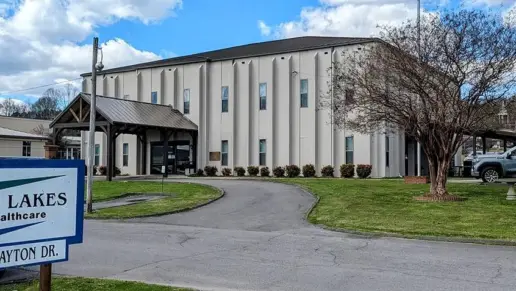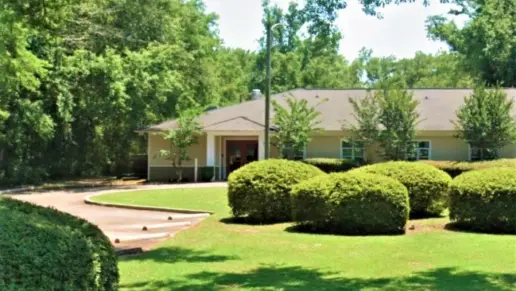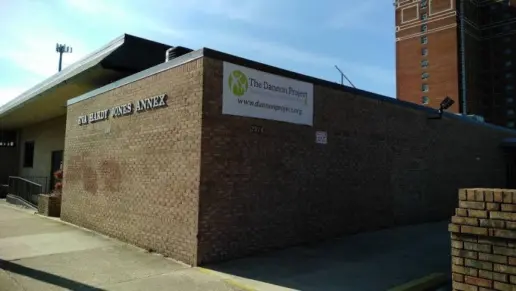If you are suicidal or have mental problems do not call them, the woman who answered the phone made me feel more like dying. They don't provide any kind of help. Look elsewhere!
About JBS Mental Health Authority
JBS Mental Health Authority is located in Birmingham, Alabama. They serve people in Jefferson, Blount and St. Clair counties. They offer individual mental health services for children, youths and adults through education, treatment and support. This facility participates in the National Health Service Corps, and they won’t deny you access if you can’t pay. Also, they use a sliding scale to determine how much each person has to pay.
They have a Residential Services Program that provides residential treatment for those dealing with mental illness, plus they have independent living settings that have different levels of support for adults. Their programs include transitional homes, group homes, day treatment services, peer to peer treatment, MOM apartments, independent living apartments, forensic services and adult foster care.
The residential treatment center team is made up of RN and LPN nurses, master level therapists, a psychiatrist, bachelor level coordinators, certified peer specialists, an entitlement and benefits specialist, MAC trained mental health technicians and a placement services team. They’ll take referrals from several different entities.
They have a JBS Children’s Services Program that’s a non traditional in home and outpatient intensive therapy program. The intensive in home intervention program is for children aged five to 18, adolescents and families who are dealing with severe emotional and behavioral issues. The first priority of this program is to intervene during a behavioral or mental health crisis and keep the child from being displaced out of their home. Secondly, care coordinators show families how and where to find community services they weren’t aware of to help with certain problems. JBS also sends mental health professionals to the Jefferson County Courthouse to work with probate judges helping those who are involuntarily committed.
Previous clients have reported life transformation due to the treatment here. Clients say the staff are friendly and helpful and answer all questions.
Facility Overview
Latest Reviews
Rehab Score
Gallery

Location
Other Forms of Payment
Self-pay involves paying for treatment out of your own pocket. You can use savings or credit, get a personal loan, or receive help from family and friends to fund your treatment. If you don't have insurance or your insurance plan doesn't cover a specific program, self-pay can help ensure you still get the care you need.
Financial aid can take many forms. Centers may have grants or scholarships available to clients who meet eligibility requirements. Programs that receive SAMHSA grants may have financial aid available for those who need treatment as well. Grants and scholarships can help you pai for treatment without having to repay.
Sliding scale payments are based on a client's income and family size. The goal is to make treatment affordable to everyone. By taking these factors into account, addiction recovery care providers help ensure that your treatment does not become a financial burden to you or your family, eliminating one barrier to care.
Medicare is a federal program that provides health insurance for those 65 and older. It also serves people under 65 with chronic and disabling health challenges. To use Medicare for addiction treatment you need to find a program that accepts Medicare and is in network with your plan. Out of pocket costs and preauthorization requirements vary, so always check with your provider.
Medicaid is a state based program that helps lower-income individuals and families pay for healthcare. Medicaid covers addiction treatment so those enrolled can use their coverage to pay for rehab. When a program accepts Medicaid the client often pays very little or nothing out of their own pocket.
Addiction Treatments
Levels of Care
Treatments
Many of those suffering from addiction also suffer from mental or emotional illnesses like schizophrenia, bipolar disorder, depression, or anxiety disorders. Rehab and other substance abuse facilities treating those with a dual diagnosis or co-occurring disorder administer psychiatric treatment to address the person's mental health issue in addition to drug and alcohol rehabilitation.
Mental health rehabs focus on helping individuals recover from mental illnesses like bipolar disorder, clinical depression, anxiety disorders, schizophrenia, and more. Mental health professionals at these facilities are trained to understand and treat mental health issues, both in individual and group settings.
Programs



Clinical Services
Cognitive Behavioral Therapy (CBT) is a therapy modality that focuses on the relationship between one's thoughts, feelings, and behaviors. It is used to establish and allow for healthy responses to thoughts and feelings (instead of unhealthy responses, like using drugs or alcohol). CBT has been proven effective for recovering addicts of all kinds, and is used to strengthen a patient's own self-awareness and ability to self-regulate. CBT allows individuals to monitor their own emotional state, become more adept at communicating with others, and manage stress without needing to engage in substance abuse.
Group therapy is any therapeutic work that happens in a group (not one-on-one). There are a number of different group therapy modalities, including support groups, experiential therapy, psycho-education, and more. Group therapy involves treatment as well as processing interaction between group members.
In individual therapy, a patient meets one-on-one with a trained psychologist or counselor. Therapy is a pivotal part of effective substance abuse treatment, as it often covers root causes of addiction, including challenges faced by the patient in their social, family, and work/school life.
Whether a marriage or other committed relationship, an intimate partnership is one of the most important aspects of a person's life. Drug and alcohol addiction affects both members of a couple in deep and meaningful ways, as does rehab and recovery. Couples therapy and other couples-focused treatment programs are significant parts of exploring triggers of addiction, as well as learning how to build healthy patterns to support ongoing sobriety.
Research clearly demonstrates that recovery is far more successful and sustainable when loved ones like family members participate in rehab and substance abuse treatment. Genetic factors may be at play when it comes to drug and alcohol addiction, as well as mental health issues. Family dynamics often play a critical role in addiction triggers, and if properly educated, family members can be a strong source of support when it comes to rehabilitation.
Amenities
-
Residential Setting
-
Private Rooms
Contact Information
940 Montclair Road
Suite 200
Birmingham AL, 35213


